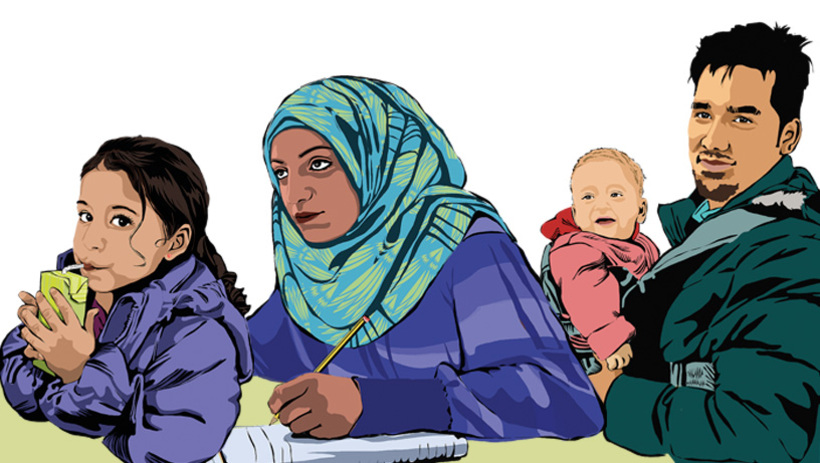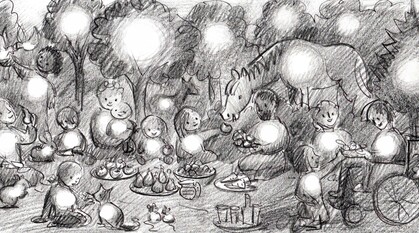Why rejecting a person seeking sanctuary is a rejection of Christian values
Tim Gee explores the faith basis behind the new Sanctuary Everywhere Manifesto, which seeks to support Quakers and others to make refugees welcome.

Quakers talk a lot about our heritage of welcoming refugees. Deeper than the practicality of action though is a strong spiritual foundation. Inherent in the belief that God dwells within every person is an imperative to welcome every person in need.
Quakers refer to ourselves as a radical faith. A definition of radical is 'to go to the root'. At the root of Quaker spiritual inheritance is the life and example of Jesus, who built practical solidarity with those whom the authorities discriminated against.
One of the most painful ironies of our modern public discourse on responses to forced migration is that some of those deliberately fostering a culture of hostility also make a claim to Judeo-Christian values.
Being true to the origins of our faith means repudiating deliberate cruelty. Thus to turn away a person seeking sanctuary is to reject Christian values, as we understand them.
An inward calling
Our Quaker book of Advices & queries encourages us to "bear witness to the humanity of all people", both by engaging in the work of reconciliation and by opposing discrimination against people on the basis of "who or what they are" (Advices & queries 33). It reminds us that people are people, wherever they come from.
The faith basis of Quaker work in Britain is further strengthened by the fact that, in many different ways, forced migration has emerged as a 'tested concern'. A Quaker concern is more than just a personal worry, or a feeling of righteous anger. It is "a special inward calling to carry out a particular service…characterised by a feeling of having been directly called by God and by an imperative to act" (Quaker faith & practice 13.2).
The British representative body for Quakers, Meeting for Sufferings, has been sent a number of minutes of concern from area meetings over recent years, and has responded by encouraging Quaker Peace & Social Witness to develop a coordinated programme to address those concerns.
The Sanctuary Meetings Project and Sanctuary Everywhere Programme and Manifesto are the result. Now is the time to act.
Sanctuary as faith practice
Although the context is different, we can be inspired nevertheless by the definition of sanctuary offered by the Quaker co-founder of the Sanctuary Churches movement in the USA:
“It incorporates prophetic witness in to protective community; that is, in addition to protecting the violated from the state, the public practice of sanctuary holds the state accountable for its violation of human rights. Sanctuary is a faith practice, which is part of what it means for the church to be the church."
We leave the last words to Jesus himself as described by Matthew, who in the last public speech before his arrest shared a vision of a future where he would be able to say: “I was a stranger and you welcomed me in".
“But when did we see you a stranger?" asks the crowd in response.
His reply: “Whatever you did – even for those considered the least [by the authorities], you did it for me" (Matthew 25:43-45).
This article is based on ministry given by Quakers during the discernment phase of the Sanctuary Everywhere Programme.


